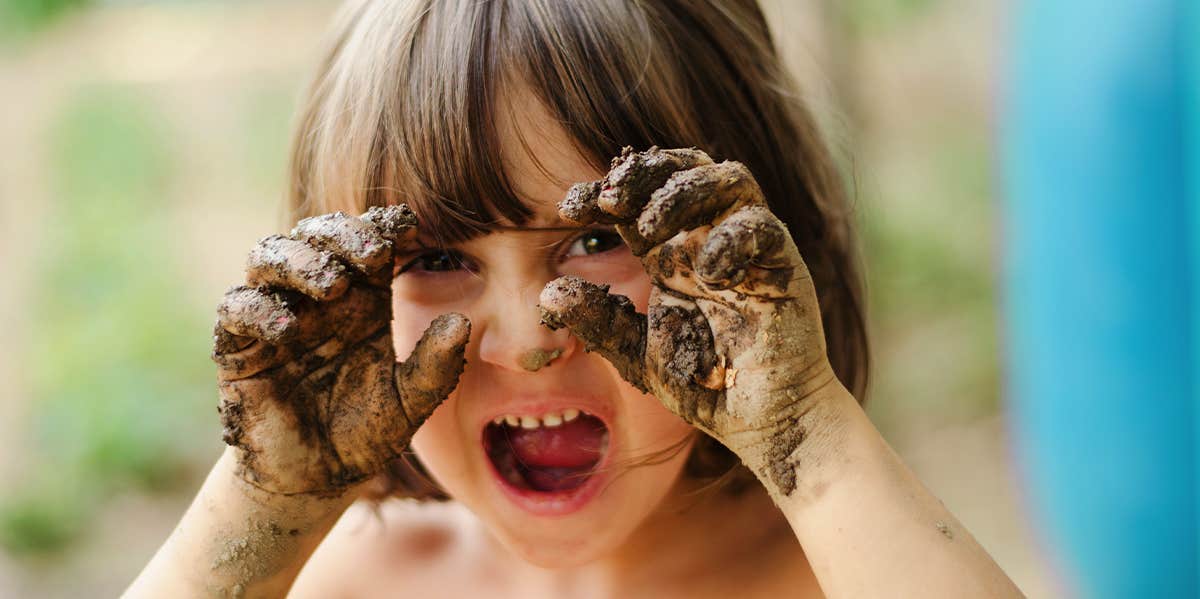Never Judge A Parent By Their Wild Child
Because the truth may surprise you.
 MaLija / Shutterstock
MaLija / Shutterstock I felt it in their stares and headshakes, the ways they either held my eyes to shame me or looked away, embarrassed on my behalf. I was mortified and insecure.
Was I raising a future felon?
Was I a terrible parent who just couldn’t cut it and didn’t deserve the job?
He didn't look different in obvious ways.
I cringed when my son had his outbursts, when his loud-as-a-siren screams echoed in grocery stores, restaurants, waiting rooms, classrooms, and so many other places. I wanted to scream too, to tell the world about his ADHD diagnosis.
Aside from his impulsiveness, inability to sit still, wait his turn, or manage his emotions, my son was not different in any obvious way. He was not born with a sign that said, “I have special needs,” although sometimes I wished he were.
It would have made things easier for both of us, and perhaps made help from others more accessible.
Parental advice only made things worse. People often suggested he needed a nap or a swat on the butt.
I didn’t want their enlightened counsel: There’s this book you should read, this gluten-free, low-sugar diet, this mommy group you should check out — as if it never occurred to me to search for basic solutions.
As if I had not scraped the bottom of every barrel of options. Conventional disciplinary tactics may have tamed other kids, but they couldn’t touch our level of chaos. Still, people shared and shared until I choked on their advice. Their words haunted me at night, liquefied into tears on my pillow.
Turns out, my son could and did indeed learn to function in the world. He is now a well-adjusted adult.
However, we have a new set of challenges, as his daughter, my beautiful and feral granddaughter, has taken up the “wild child” mantle. She’s recently been diagnosed with autism spectrum disorder, so I find myself doing what I’d done so long ago when faced with my son’s diagnosis.
I grope for understanding, teeter on tight ropes of worst-case scenarios and fall down the rabbit hole of internet information. I measure the statistics and calculate the possible outcomes for my granddaughter.
I give myself a WebMD education and make plans to apply my knowledge in multifarious ways. My face glints behind a phone screen while other parents and grandparents of neurotypical kids sleep in their warm beds.
Again, I feel called to the stand in the court of public opinion. But this time around, I don’t feel quite so tormented, so alien and ashamed in those grocery store lines where people sneak glances during my granddaughter's fits.
I am not compelled to apologize for the collective headache she’s likely giving her audience. Instead, I am plagued with other compulsions — the need to protect my son from the bad-parent label he may feel (whether real or imagined) is thrust upon him.
And call me a grandma bear, but I want to show my teeth to anyone who may think the worst of my granddaughter, who may brand her with words like “bad,” “unruly” and “undisciplined.”
The autism diagnosis flooded me with questions. As we await the various appointments with speech and occupational therapists, professionals with care plans, well-mapped out protocols, and coping strategies I ask what we should reasonably expect.
Will my granddaughter do well in a mainstream school, learn to speak in sentences, and process sensory stimuli? I’m told to focus on the “here and now,” to detach from worrying about the future, and resist the urge to sum it all up like a math equation.
And so, when the sleepless nights come, I turn off the computer and chase away thoughts of the milestones she’s missed, the nagging questions about who she will become and what she will or won’t achieve.
I remind myself to praise and appreciate her strengths. To simply relish her individuality, and to try with all my heart to show others that “different” also means unique. Wonderfully unique.
I’m okay with that label.
RIca Ramos-Keenum is an author and former journalist. She writes about the mother wound, parenting a child with ADHD, infidelity and divorce, and the struggles of single motherhood.

